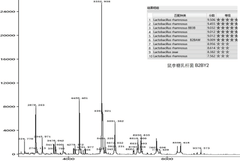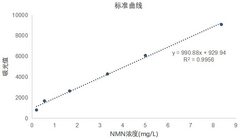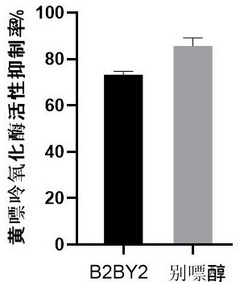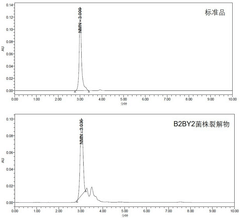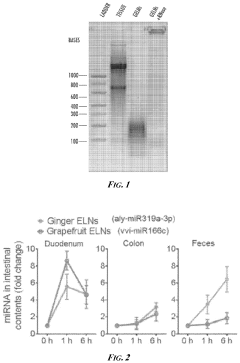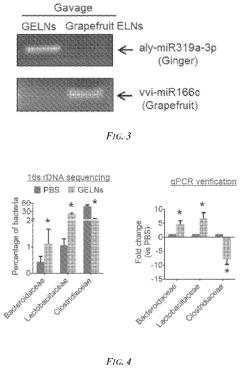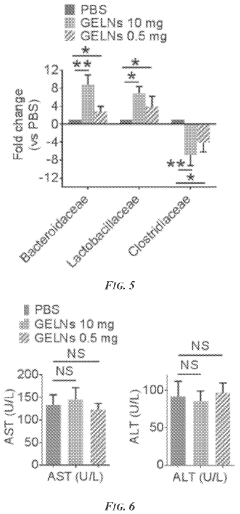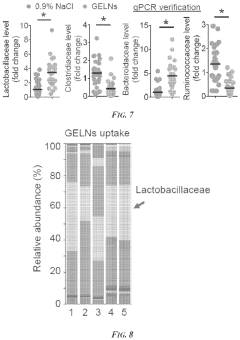NMN’s Influence on the Gut Microbiome: Latest Findings
NMN Research Background
Nicotinamide mononucleotide (NMN) and the gut microbiome have emerged as two critical areas of research in recent years, with growing evidence suggesting a complex interplay between them. NMN, a precursor to nicotinamide adenine dinucleotide (NAD+), has gained attention for its potential anti-aging properties and metabolic benefits. Concurrently, the gut microbiome has been recognized as a key player in human health, influencing various physiological processes.
The intersection of NMN and microbiome research began to take shape in the early 2010s, as scientists started exploring the broader impacts of NAD+ precursors on overall health. Initial studies focused primarily on NMN's effects on cellular metabolism and energy production. However, as research progressed, investigators began to notice changes in gut microbial compositions in animal models supplemented with NMN.
This observation led to a new wave of studies aimed at understanding the bidirectional relationship between NMN supplementation and the gut microbiome. Researchers hypothesized that NMN might not only directly affect host cells but also indirectly influence health outcomes through modulation of the gut microbial ecosystem.
Key milestones in this field include the discovery that NMN supplementation could alter the abundance of certain bacterial species in the gut, particularly those involved in short-chain fatty acid production. Additionally, studies revealed that the gut microbiome might play a role in the bioavailability and efficacy of orally administered NMN, suggesting a complex feedback loop between the supplement and the microbial community.
As the field evolved, researchers began employing more sophisticated techniques, such as metagenomic sequencing and metabolomics, to elucidate the mechanisms underlying the NMN-microbiome interaction. These advanced methodologies allowed for a more comprehensive understanding of how NMN influences microbial diversity, metabolic pathways, and the production of bioactive compounds by gut bacteria.
Recent years have seen an expansion of research beyond rodent models to include human studies, albeit on a limited scale. These investigations have started to shed light on how NMN supplementation might affect the human gut microbiome and whether these changes correlate with improvements in various health parameters, such as insulin sensitivity and markers of inflammation.
The growing body of evidence linking NMN and the gut microbiome has opened up new avenues for research in aging, metabolism, and overall health. It has also sparked interest in developing targeted interventions that leverage the synergistic effects of NMN supplementation and microbiome modulation.
Market Analysis for NMN Supplements
The global market for NMN (Nicotinamide Mononucleotide) supplements has experienced significant growth in recent years, driven by increasing consumer awareness of its potential health benefits, particularly in the realm of healthy aging and longevity. This market expansion is closely tied to the growing body of research on NMN's effects on cellular health and its potential influence on the gut microbiome.
The NMN supplement market is primarily segmented by distribution channels, including online retail, specialty stores, and pharmacies. Online retail has emerged as the dominant distribution channel, accounting for a substantial portion of sales due to its convenience and wider product selection. The market is further categorized by product forms, such as capsules, powders, and liquids, with capsules currently holding the largest market share.
Geographically, North America leads the NMN supplement market, followed by Asia-Pacific and Europe. The United States, in particular, represents a significant market due to its aging population and high consumer spending on dietary supplements. In Asia-Pacific, Japan and China are key markets, with Japan being a pioneer in NMN research and production.
The target demographic for NMN supplements primarily consists of middle-aged and older adults seeking to support healthy aging. However, there is a growing interest among younger consumers who are proactively addressing their long-term health. This shift in consumer demographics is expected to drive market growth in the coming years.
Key market drivers include the increasing aging population worldwide, rising healthcare costs, and a growing focus on preventive healthcare. The COVID-19 pandemic has further accelerated interest in immune health and overall well-being, indirectly benefiting the NMN supplement market.
Despite the positive growth trajectory, the market faces challenges such as high production costs, which translate to premium pricing for NMN supplements. This factor may limit market penetration in price-sensitive regions. Additionally, regulatory uncertainties in some countries regarding the classification of NMN as a dietary supplement or a drug pose potential barriers to market expansion.
Looking ahead, the NMN supplement market is projected to continue its growth trend. Factors such as ongoing research into NMN's effects on the gut microbiome and its potential applications in various health conditions are likely to fuel market expansion. The increasing focus on personalized nutrition and the integration of NMN into functional foods and beverages present opportunities for market diversification and product innovation in the coming years.
Current Challenges in NMN-Microbiome Studies
Despite the growing interest in NMN's potential effects on the gut microbiome, researchers face several significant challenges in this field of study. One of the primary obstacles is the complexity of the gut microbiome itself. The human gut contains trillions of microorganisms, with vast diversity and intricate interactions among different species. This complexity makes it difficult to isolate and attribute specific changes to NMN supplementation alone.
Another challenge lies in the variability of individual microbiomes. Each person's gut microbiome is unique, influenced by factors such as diet, lifestyle, genetics, and environmental exposures. This heterogeneity complicates the interpretation of study results and the development of standardized protocols for NMN-microbiome research.
The dosage and duration of NMN supplementation present additional challenges. Researchers are still working to determine the optimal dosage and treatment duration to observe significant effects on the gut microbiome. Moreover, the bioavailability and metabolism of NMN in the gut remain areas of active investigation, as these factors can significantly impact its effectiveness in modulating the microbiome.
Methodological limitations also pose challenges in NMN-microbiome studies. Current techniques for analyzing the gut microbiome, such as 16S rRNA sequencing and metagenomic analysis, have their own limitations in terms of resolution and comprehensiveness. These limitations can affect the accuracy and depth of insights gained from microbiome studies.
The long-term effects of NMN supplementation on the gut microbiome are yet to be fully elucidated. Most studies to date have focused on short-term interventions, leaving gaps in our understanding of the sustained impact of NMN on microbial communities over extended periods. This lack of long-term data hinders the development of evidence-based recommendations for prolonged NMN use.
Furthermore, the mechanisms by which NMN influences the gut microbiome are not fully understood. While some studies have shown changes in microbial composition and metabolic activity following NMN supplementation, the precise pathways and interactions involved remain unclear. Elucidating these mechanisms is crucial for developing targeted interventions and predicting potential side effects.
Lastly, translating findings from animal studies to human applications presents a significant challenge. Many of the current insights into NMN's effects on the gut microbiome come from rodent studies, which may not accurately reflect the human gut ecosystem. Conducting well-designed human trials with adequate sample sizes and controls is essential to validate and extend these findings to clinical applications.
NMN-Microbiome Interaction Mechanisms
01 NMN's impact on gut microbiome composition
NMN supplementation can significantly alter the composition of the gut microbiome. It has been observed to increase the abundance of beneficial bacteria while reducing harmful ones. This modulation of the gut microbiota may contribute to the overall health benefits associated with NMN intake, including improved metabolic function and enhanced longevity.- NMN's impact on gut microbiome composition: NMN supplementation can significantly alter the composition of the gut microbiome. It has been observed to increase the abundance of beneficial bacteria while reducing harmful ones. This modulation of the gut microbiota may contribute to the overall health benefits associated with NMN, including improved metabolic function and enhanced longevity.
- NMN's role in gut barrier function: NMN has been found to play a crucial role in maintaining and improving gut barrier integrity. It helps strengthen the tight junctions between intestinal epithelial cells, reducing gut permeability and preventing the translocation of harmful bacteria and toxins. This effect may contribute to reduced inflammation and improved overall gut health.
- NMN's influence on microbial metabolite production: The administration of NMN can alter the metabolic activity of gut microbes, leading to changes in the production of various metabolites. These metabolites, including short-chain fatty acids and other bioactive compounds, can have wide-ranging effects on host metabolism, immune function, and overall health. The modulation of microbial metabolite production may be a key mechanism by which NMN exerts its beneficial effects.
- Synergistic effects of NMN and probiotics: Combining NMN supplementation with specific probiotic strains has shown potential synergistic effects on gut health and overall well-being. This combination may enhance the beneficial impacts on the gut microbiome, leading to improved metabolic outcomes, enhanced immune function, and potentially increased longevity. The synergy between NMN and probiotics represents a promising area for future research and therapeutic applications.
- NMN's effect on age-related gut microbiome changes: NMN supplementation has demonstrated potential in mitigating age-related changes in the gut microbiome. It may help maintain a more youthful and diverse microbial community, potentially slowing down the aging process and reducing the risk of age-associated diseases. This effect on the gut microbiome could be a key factor in NMN's overall anti-aging properties.
02 NMN's role in gut barrier function
NMN has been found to play a crucial role in maintaining and improving gut barrier integrity. It helps strengthen the tight junctions between intestinal epithelial cells, reducing gut permeability and preventing the translocation of harmful bacteria and toxins into the bloodstream. This effect may contribute to reduced inflammation and improved overall gut health.Expand Specific Solutions03 NMN's influence on microbial metabolite production
The administration of NMN can alter the metabolic activity of gut microbiota, leading to changes in the production of various microbial metabolites. These metabolites, including short-chain fatty acids and other bioactive compounds, can have significant effects on host metabolism, immune function, and overall health. The modulation of these metabolites through NMN supplementation may contribute to its systemic health benefits.Expand Specific Solutions04 Synergistic effects of NMN and probiotics
Combining NMN supplementation with specific probiotic strains has shown potential synergistic effects on gut health and overall well-being. This combination may enhance the beneficial modulation of the gut microbiome, improve nutrient absorption, and boost the production of health-promoting compounds by gut bacteria. The synergy between NMN and probiotics could offer a more comprehensive approach to supporting gut health and longevity.Expand Specific Solutions05 NMN's effect on gut-brain axis communication
NMN supplementation may influence the gut-brain axis, the bidirectional communication system between the gastrointestinal tract and the central nervous system. By modulating the gut microbiome and enhancing the production of neuroactive compounds by gut bacteria, NMN could potentially impact cognitive function, mood, and neurological health. This interaction between NMN, the gut microbiome, and the nervous system opens up new avenues for research in neurodegenerative disorders and mental health.Expand Specific Solutions
Key Players in NMN Industry
The research on NMN's influence on the gut microbiome is in its early stages, with the market showing significant growth potential. The technology is still emerging, as evidenced by the diverse range of players involved. Companies like ChromaDex, Inc. and DSM IP Assets BV are at the forefront, leveraging their expertise in nutraceuticals. Academic institutions such as the University of Louisville Research Foundation and China Agricultural University are contributing valuable research. Biotechnology firms like Seed Health, Inc. and Bloomage Biotechnology Corp. Ltd. are exploring innovative applications. The involvement of major food industry players like Inner Mongolia Yili Industrial Group Co., Ltd. and Meiji Holdings Co., Ltd. suggests potential for widespread consumer applications, indicating a maturing market with diverse stakeholders across the research, biotech, and consumer goods sectors.
Cornell University
The Regents of the University of California
Breakthrough Studies on NMN-Gut Microbiome
- A Lactobacillus rhamnosus strain B2BY2 was isolated and identified. This strain can synthesize NMN in the gastrointestinal tract, inhibit xanthine oxidase, reduce blood uric acid levels, and prepare products for lowering uric acid and preventing hyperuricemia.
- Administering edible plant-derived exosome-like nanoparticles encapsulating specific microRNAs, such as miR166c, miR167a, miR319a, miR396e, and miR827, to modulate the composition of gut microbiota by targeting specific bacteria like Lactobacillaceae and Bacteroidaceae, thereby preventing or treating gut dysbiosis and inflammation.
Safety and Regulatory Aspects of NMN
The safety and regulatory aspects of Nicotinamide Mononucleotide (NMN) are crucial considerations as research into its influence on the gut microbiome progresses. Currently, NMN is classified as a dietary supplement in many countries, including the United States, which means it is not subject to the same rigorous regulatory oversight as pharmaceutical drugs. However, as more studies emerge highlighting its potential effects on the gut microbiome, regulatory bodies may need to reassess this classification.
Safety studies on NMN have generally shown it to be well-tolerated in human trials, with few reported adverse effects. However, these studies have primarily focused on short-term use and relatively small sample sizes. As research into NMN's impact on the gut microbiome advances, longer-term safety studies will be necessary to fully understand any potential risks associated with prolonged use, particularly in relation to alterations in the gut microbial composition.
Regulatory agencies, such as the FDA in the United States and the EMA in Europe, are closely monitoring the emerging research on NMN. While NMN is currently available as a supplement, its status could change if substantial evidence emerges demonstrating its ability to prevent, treat, or cure diseases through its effects on the gut microbiome. In such cases, it may be reclassified as a drug, requiring more stringent regulatory approval processes.
The potential for NMN to modulate the gut microbiome raises important questions about dosage and administration. Current supplement dosages are based on limited clinical data, and as our understanding of NMN's effects on gut bacteria evolves, regulatory guidelines for appropriate dosing may need to be established. This is particularly important given the complex and individualized nature of the gut microbiome.
Manufacturers and researchers working with NMN must adhere to Good Manufacturing Practices (GMP) and ethical research standards. As interest in NMN grows, regulatory bodies may implement more specific guidelines for its production and quality control, especially if its effects on the gut microbiome are found to be significant and widespread.
International regulatory harmonization will be crucial as research on NMN's influence on the gut microbiome continues to develop. Different countries may have varying approaches to regulating NMN, which could impact global research efforts and market availability. Collaborative efforts between regulatory agencies worldwide will be essential to establish consistent safety standards and research protocols.
In conclusion, while current safety profiles for NMN are generally favorable, ongoing research into its effects on the gut microbiome may lead to evolving regulatory requirements. Stakeholders in NMN research and development should anticipate potential changes in regulatory landscapes and prioritize comprehensive safety assessments, particularly in relation to long-term effects on gut microbial communities.
Potential Clinical Applications of NMN
The potential clinical applications of NMN (Nicotinamide Mononucleotide) in relation to its influence on the gut microbiome are diverse and promising. Recent findings have shed light on the intricate relationship between NMN supplementation and the composition of the gut microbiota, opening up new avenues for therapeutic interventions.
One of the most significant potential applications lies in the field of metabolic disorders. Studies have shown that NMN supplementation can positively modulate the gut microbiome, leading to improved insulin sensitivity and glucose metabolism. This suggests that NMN could be a valuable adjunct therapy for conditions such as type 2 diabetes and obesity, where dysbiosis of the gut microbiota is often observed.
In the realm of cardiovascular health, NMN's influence on the gut microbiome may contribute to its cardioprotective effects. Research has indicated that NMN supplementation can enhance the production of beneficial metabolites by gut bacteria, which in turn may help reduce inflammation and improve vascular function. This presents a potential avenue for developing novel strategies to prevent and manage cardiovascular diseases.
The neuroprotective properties of NMN, coupled with its effects on the gut microbiome, also hold promise for neurological disorders. The gut-brain axis, a bidirectional communication system between the gastrointestinal tract and the central nervous system, is increasingly recognized as a key player in neurodegenerative diseases. NMN's ability to modulate this axis through its influence on the gut microbiome suggests potential applications in conditions such as Alzheimer's disease and Parkinson's disease.
Furthermore, the impact of NMN on the gut microbiome may have implications for immune system regulation. Preliminary studies have shown that NMN supplementation can enhance the diversity and abundance of beneficial bacterial species in the gut, which are known to play crucial roles in maintaining immune homeostasis. This opens up possibilities for using NMN as an immunomodulatory agent in various conditions, including autoimmune disorders and certain types of cancer.
In the field of gerontology, NMN's effects on the gut microbiome could contribute to its anti-aging properties. The gut microbiome undergoes significant changes with age, and these alterations are associated with various age-related health issues. By promoting a healthier gut microbiome profile, NMN supplementation may help mitigate some of the detrimental effects of aging on overall health and longevity.
